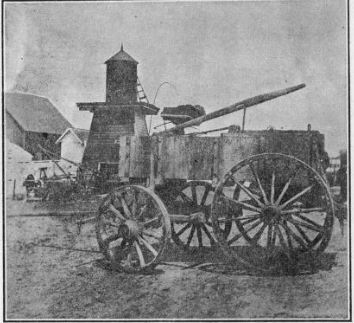90. Night Soil
Description
This section is from the book "Vegetable Gardening", by Ralph L. Watts. Also available from Amazon: Vegetable Gardening.
90. Night Soil
Night Soil is a term applied to the human excrements, used extensively in the gardens near Philadelphia and for truck crops near Baltimore. At Baltimore it is taken from vaults and transported on barges to truck farms and there pumped into large reservoirs, which are provided with double gates. When loading on the wagons, which are backed up to the spouts of the reservoirs, the outer gate is first closed and the inner gate opened. The space between the two gates holds a wagon load. When this space is filled, the inner gate is closed and the outer gate opened and the material is then conducted into the wagons, provided with tanks that are closed tightly when the wagon is in motion. In distributing over the field the end gate to the tank is raised by a lever operated by the driver, and the watery material is then spread over the slanting tail-board. Figure 10 shows the style of wagon used on the Patapsco Neck near Baltimore. An analysis shows that the Baltimore night soil contains 0.28 per cent phosphoric acid, 0.2 per cent potash and 0.43 per cent ammonia and is worth about $1.50 a ton. It is secured at a nominal cost, but if the unpleasant character of the material is taken into account, gardeners should be well paid for accepting and using it. In Philadelphia County considerable night soil is hauled in barrels with tight covers to market gardens providing dumping reservoirs. No charge is made for the material and no bonus is paid the gardeners.

Fig. 10. Night Soil Tank-Wagon Used Near Baltimore.
Continue to:
Tags
plants, crops, gardening, cultivated, harvesting, food ,greenhouses, fertiliser, vegitables
